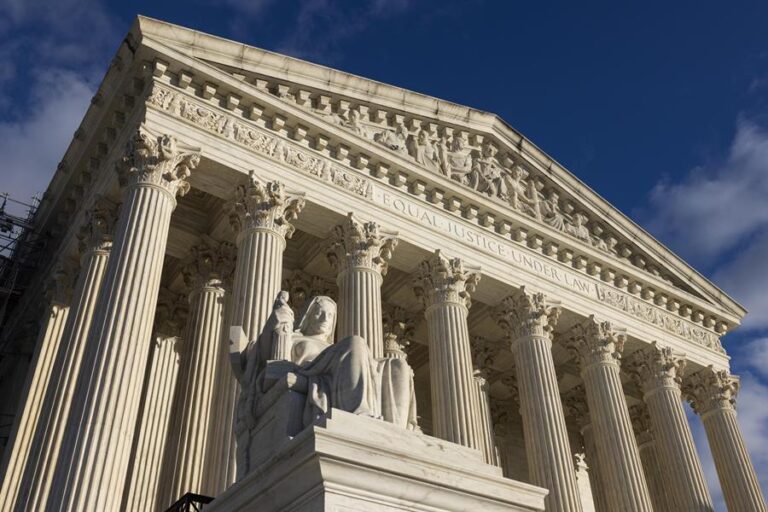
Supreme Court Allows Trump in Colorado Primary!
Washington, Mar 4 (EFE) –
The United States Supreme Court on Monday ruled that former President Donald Trump’s (2017-2021) exclusion from Colorado’s Republican primaries was unconstitutional, paving the way for him to be elected as his party’s presidential candidate.
The Colorado Supreme Court disqualified Trump from running on Dec.19 on the grounds that he is ineligible to hold public office under Section 3 of the 14th Amendment to the Constitution for having engaged in an attempted “insurrection” on Jan. 6, 2021, when his supporters attacked the Capitol Building in Washington to prevent Congress from formalizing President Joe Biden’s victory.

The Supreme Court’s decision, announced on the eve of Super Tuesday, a key date in the race for the White House, could also affect similar lawsuits filed by the states of Maine and Illinois.
Trump posted a celebratory message on his Truth social network, “Big win for America,!” and later said in an impromptu statement from his Mar-a-Lago estate in Florida that the court’s decision “will go a long way toward bringing our country together, which our country needs.”
Colorado Secretary of State Jena Griswold acknowledged the court’s decision in a statement, declaring, “Consistent with this decision, Donald Trump is an eligible candidate in Colorado’s 2024 presidential primary.”
On Monday’s decision, the conservative-majority Supreme Court focused on legal issues and did not take a position on whether Trump had committed treason, arguing that under the Constitution it is the responsibility of Congress, not the states, to enforce Section 3 of the 14th Amendment.
That amendment was passed in 1868 after the US Civil War to prevent rebellious southerners in the Confederacy who had sworn allegiance to the Constitution only to later betray it from gaining access to power.
“We conclude that states may disqualify persons holding or attempting to hold state office. But states have no power under the Constitution to enforce Section 3 with respect to federal offices, especially the presidency,” the ruling reads.
Although the justices offered different rationales, the decision was unanimous and marked the Supreme Court’s most direct intervention in an election since Bush v. Gore, which resolved a dispute over Florida’s electoral votes and ultimately awarded victory to George W. Bush, who served as president from 2001 to 2009.

On Feb. 8 the Supreme Court justices had heard arguments from the parties in the Colorado case, and even then they were cautious about the impact that Trump’s disqualification from the state’s primary could have nationally, especially in light of the November elections.
Both the more progressive and the more conservative justices expressed discomfort during their arguments with the idea of individual states interpreting the constitutional eligibility of a candidate for national office.
The ruling came without the justices in the courtroom, as they are not scheduled to hold hearings until March 15.
The justices bowed to the pressure of a tight election calendar and the pleas of the Colorado Republican Party to act before March 5, “Super Tuesday,” when 15 states, including Colorado, hold primaries. EFE
pem/ics/mcd


